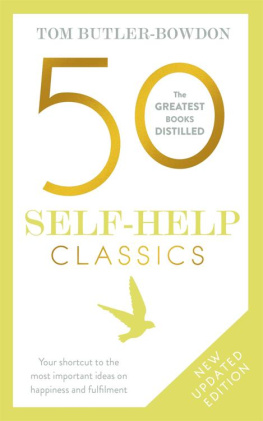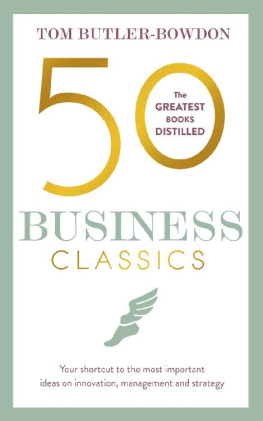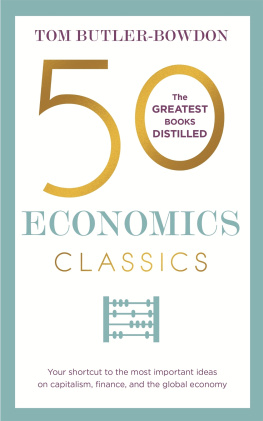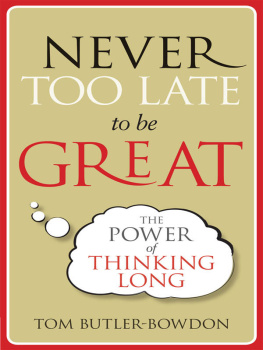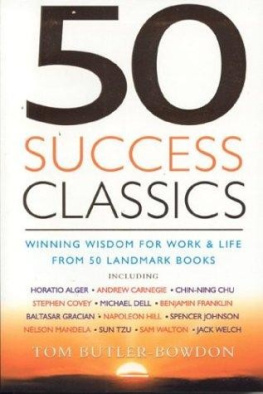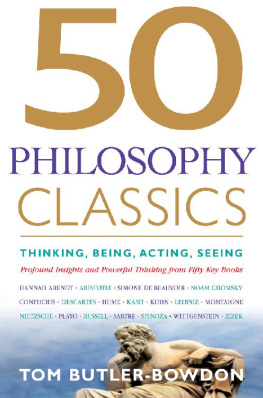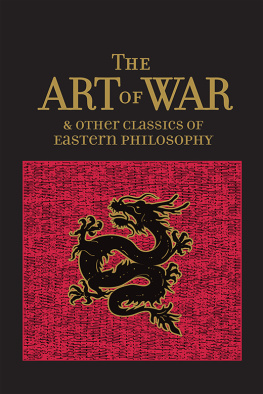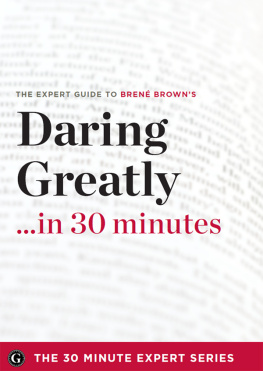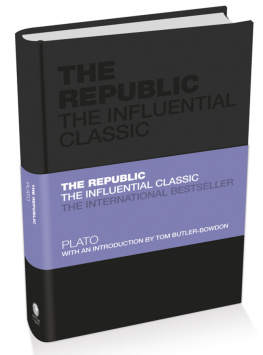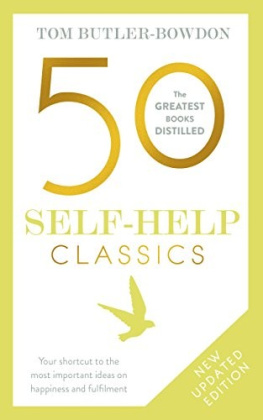
www.nicholasbrealey.com
www.Butler-Bowdon.com
This new and updated edition first published in 2017 by Nicholas
Brealey Publishing
An imprint of John Murray Press
First edition published in 2003
An Hachette UK company
Copyright Tom Butler-Bowdon 2003, 2017
The right of Tom Butler-Bowdon to be identified as the Authors of the Work has been asserted by him in accordance with the Copyright, Designs and Patents Act 1988.
All rights reserved.
No part of this publication may be reproduced, stored in a retrieval system, or transmitted, in any form or by any means without the prior written permission of the publisher, nor be otherwise circulated in any form of binding or cover other than that in which it is published and without a similar condition being imposed on the subsequent purchaser.
British Library Cataloguing-in-Publication Data
A catalogue record for this book is available from the British Library and the Library of Congress.
ISBN 978-1-473-65828-8
eBook (UK) ISBN 978-1-857-88474-6
eBook (US) ISBN 978-1-473-64448-9
www.nicholasbrealey.com
www.butler-bowdon.com

Contents
Preface
Second Edition
O n many levels, 50 Self-Help Classics is a special book for me. The self-help literature that I discovered in my twenties turned my life around and changed my thinking. I fell in love with it, reading every title I could get my hands on to boost my career and improve my relationships. But as I got deeper into the genre, and saw how amazing it is, I wondered: why there was no guide to it? Perhaps it was because self-help had a slightly low-brow reputation, but this seemed totally unjustified.
Despite a heritage going back to Samuel Smiles and Orison Swett Marden in the nineteenth century, in the late 1990s self-help books seemed like a new thing. A string of mega-selling titles, from The 7 Habits of Highly Effective People to Dont Sweat the Small Stuff to Awaken The Giant Within, had made self-help a hot publishing genre, yet it still lacked critical appreciation. 50 Self-Help Classics was my attempt to fill this gap. The book sold extremely well, and ended up being translated into 20 languages. Though the majority of self-help authors were American, it was clearly a global phenomenon.
Though I had never planned to become a writer, self-help pulled me into its orbit, virtually demanding that I leave a successful career and devote myself to it full-time. True to the self-help mantra, so beautifully expressed in Paulo Coelhos The Alchemist, that one must follow your dream, I was very happy to do so. It felt like a vocation.
As it happened, 50 Self-Help Classics proved to be just the entry point to a larger exploration of personal development, and the foundation of a bestselling series. The book was followed by 50 Success Classics, a survey of the success and motivational literature, and then 50 Spiritual Classics. Later books in the series, such as 50 Psychology Classics, 50 Philosophy Classics, and 50 Economics Classics may seem to be about drier topics, but this isnt so; what drives every title is the potential of the individual. Success is always about expanding the mind and seeing new possibilities, and the 50 Classics series is my contribution to that end.
Almost 15 years have passed since 50 Self-Help Classics was published. What, if anything, has changed in the self-help field? Many would argue that the genre has been superseded by psychology and its more scientific approach to understanding why we think and act as we do. Indeed, when I wrote about Daniel Golemans Emotional Intelligence and Martin Seligmans Learned Optimism, such titles were a sign of things to come in terms of personal development becoming more grounded and scientific. A person who 20 years ago might have been happy to get a lift or a set of life pointers from a classic work such as How to Win Friends and Influence People, today might be drawn to a book by a distinguished psychologist instead. It should be no surprise that serious titles such as Daniel Kahnemans Thinking, Fast and Slow, which reveal how our brains work and which therefore help us change our behaviors, are now found at the top of bestseller lists.
Yet to say that self-help has been overtaken by psychology would be wrong. There is still a place for great self-help writing, although it is more likely to support its claims by reference to research. Charles Duhiggs The Power of Habit and Bren Browns Daring Greatly, which I look at in the new edition, are good examples. Yet self-help books can offer something that goes beyond psychology. David Brooks The Road to Character is really a work of ethical philosophy with a powerful message about personal change across a lifetime. Marie Kondos deceptively simple The Life-Changing Magic of Tidying Up aims to transform the readers life through changing our attitude to things and spaces; if our homes have the air of a Shinto shrine, peace, order, and happiness reign. What self-help books do really well is combine aspects of different areas, including psychology, philosophy, spirituality, motivation, and even business (see, for example, Clayton Christensens How Will You Measure Your Life?), and the best ones create an intimate connection with the reader. You really can change your life, the author tells us, and I will show you how.
This combination of education and inspiration is what originally drew me to the self-help genre, and as I put together this new edition of 50 Self-Help Classics, with its new chapters on the books mentioned above, it is still what holds me in its thrall.
Tom Butler-Bowdon
Acknowledgments
50 Self-Help Classics was originally published by Simon & Schuster in Australia. Nicholas Brealey acquired rights to the book in 2003, which was then revised for UK and US publication.
This new, updated edition took shape at Nicholas Brealey Publishing, now part of Hachette UK. At Hachette I thank editorial director Holly Bennion, sales manager Ben Slight and editorial assistant Louise Richardson, the rights team headed by Joanna Kaliszewska, and designer Joanne Myler who came up with the great new cover. Thanks for your work championing the 50 Classics series, along with Hachette offices in the United States, Australia, the Far East, and India.
I am grateful to the many people who have touched by the book and wrote to tell me so. Writing it was a personal, deeply inspiring experience. Im grateful to the people who supported my efforts to be a writer at that time, including my parents Marion and Anthony, the Lucas family, and many friends and colleagues.
I salute all the writers and figures who created the self-help genre, and am grateful for the ideas of the living authors included in the book.
Introduction
The greatest discovery of my generation is that a human being can alter his life by altering his attitudes.
William James (18421910)
Habits of thinking need not be forever. One of the most significant findings in psychology in the last twenty years is that individuals can choose the way they think.

